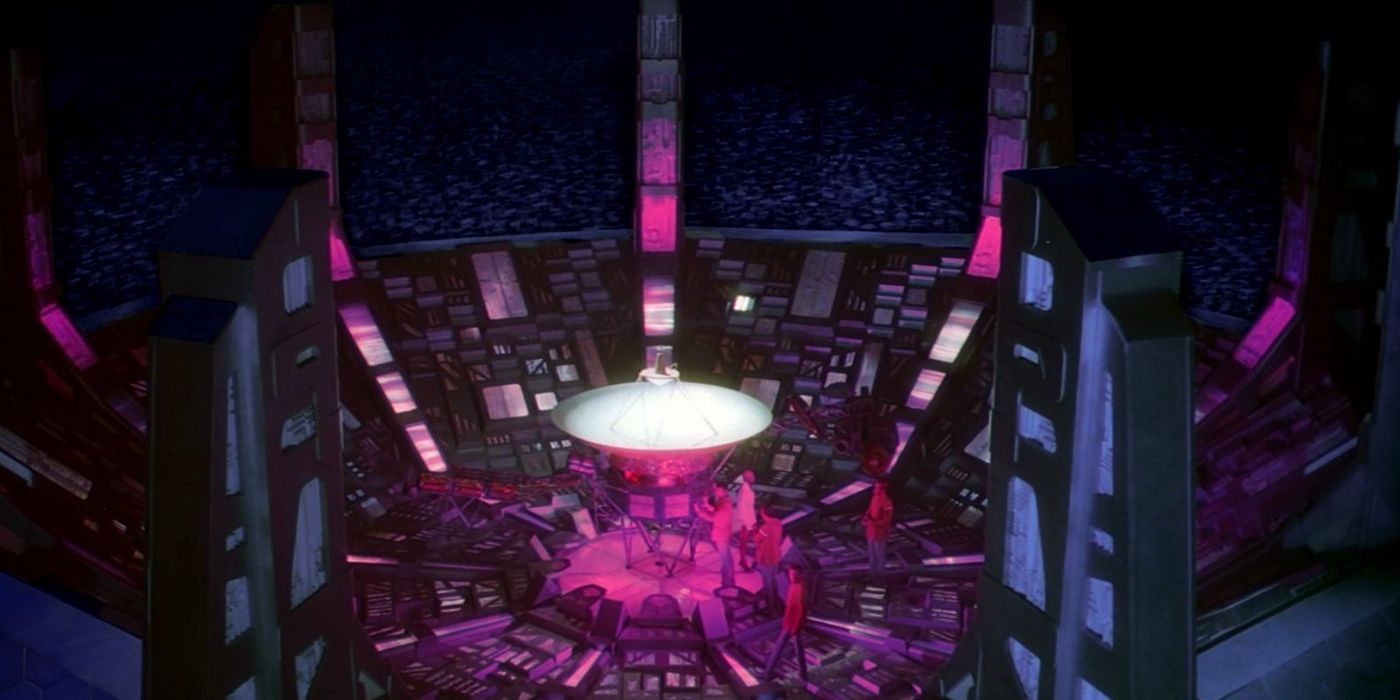Continuing the trend set in the TV series on which the movies are based, the villains of the Star Trek movies have a wide range of motivations. Whether they're justified or absolutely ludicrous, the point of the villains in Trek is to show the opposite of the honorable heroes.
While Kirk, Spock, and the rest of the Starfleet officers embody the best of what the future has to offer, their antagonists represent shortcomings that reflect contemporary issues with human society. Khan is a prime example of this idea, and his mad quest for revenge sees him eventually destroy himself while trying to tear Kirk down.
Revenge is the most common motivator, but it isn't the only one. Villains like Klingon Captain Kruge are out for power, which also illustrates concepts like greed. Each Star Trek movie features a villain in one capacity or another, but the best antagonist showed up in the first movie, and is largely overlooked.
V’Ger Was The First Villain In Star Trek Movie History
The Motion Picture Had A Fascinating Antagonist
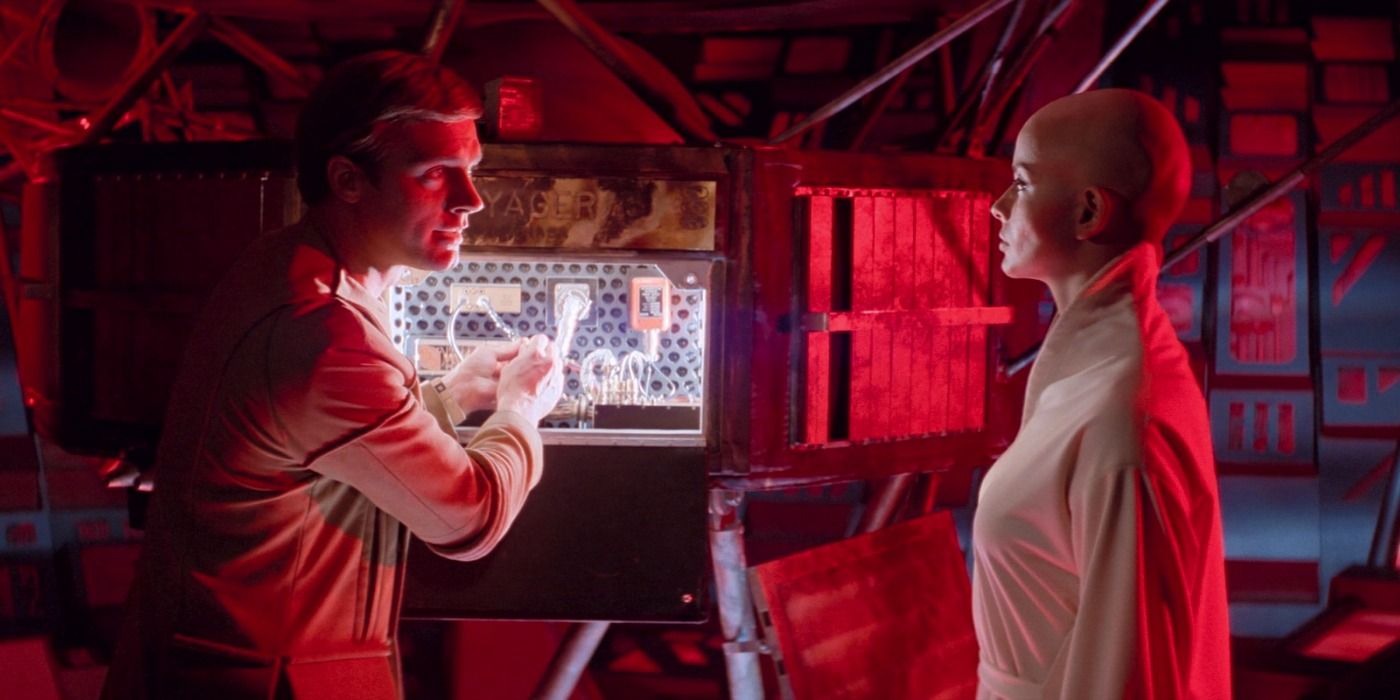
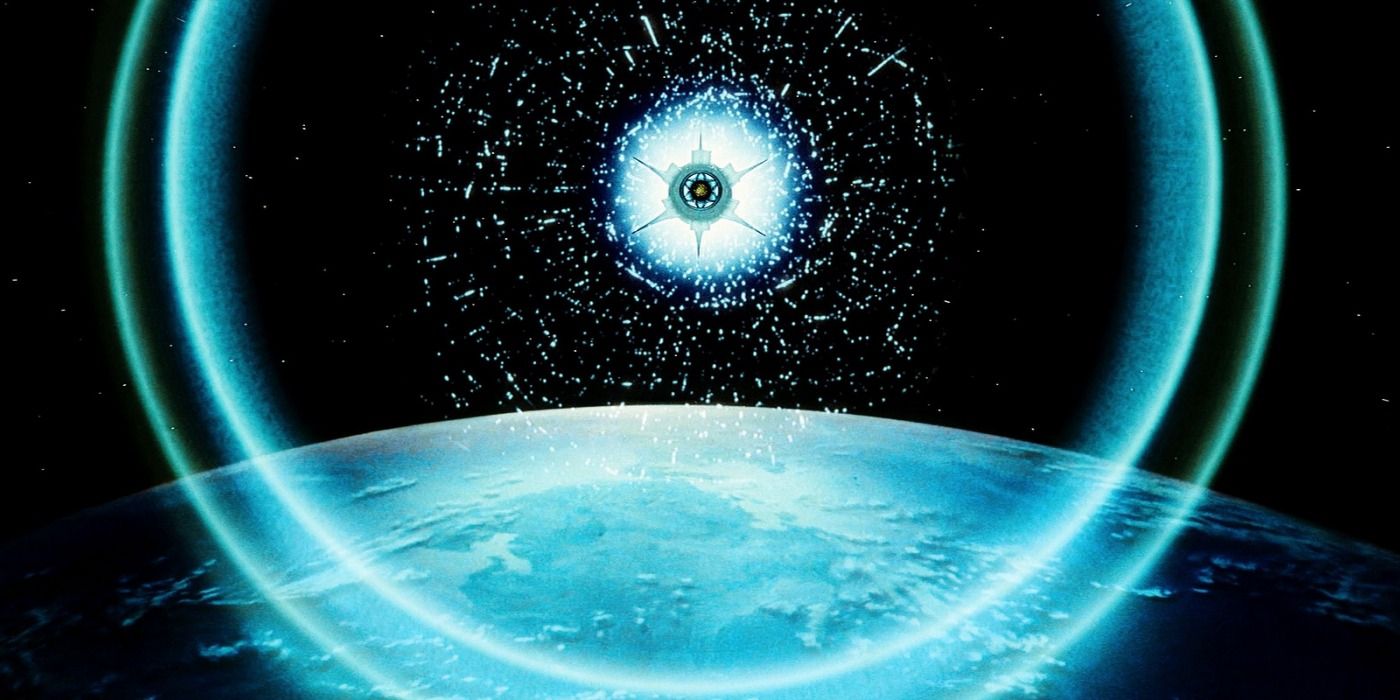
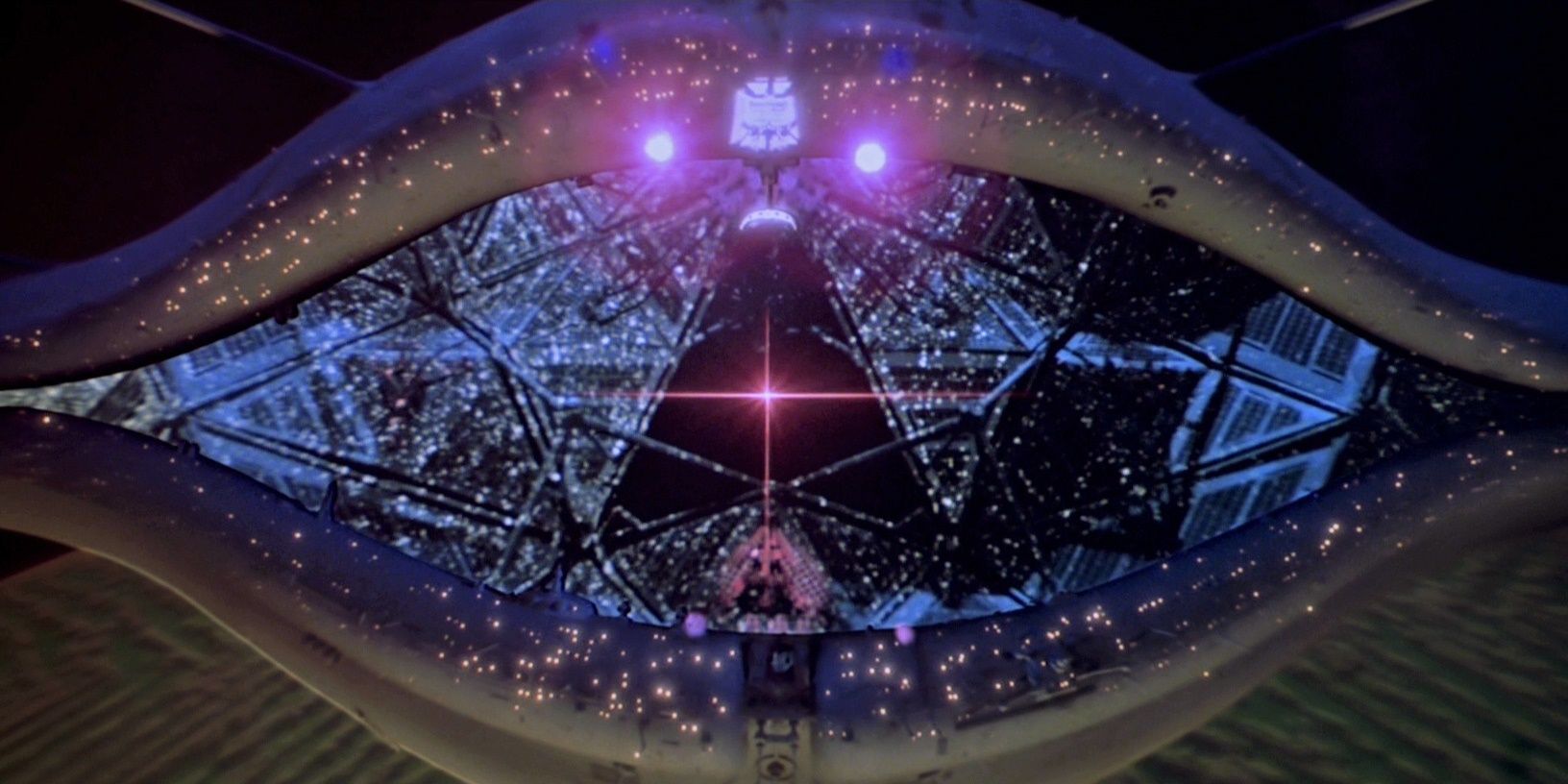
Star Trek: The Motion Picture premiered in 1979 and saw the franchise make the leap to the big screen for the first time. Though the movie got lackluster reviews, and is not fondly remembered, it did help kick off the Star Trek movie franchise which carried on for decades. Naturally, the film had the first Trek movie villain, V'Ger.
Throughout the film, V'Ger's motivation is kept vague, and there is a legitimately compelling mystery surrounding what the sentient technological being wants with Earth. The Motion Picture's ending reveals that V'Ger is actually what's left of a Voyager space probe, and it has been augmented with new technology. V'Ger was never malevolent, but simply didn't understand what it was doing.
V’Ger Is The Perfect Star Trek Villain
Technology & Humanity Collide To Make The Best Trek Antagonist
In contrast to Star Trek movie villains like Khan, V'Ger isn't evil or malevolent. Instead, it's simply hunting for knowledge and is lost after gaining sentience. The AI being serves as a metaphor for humanity's search for meaning, and how an expansion of consciousness is often met with an existential crisis.
The original Star Trek series is incredibly utopian, and offers an idealized view of what humanity is capable of. On the other hand, The Motion Picture reflects the evolution of those ideals, and it examines the repercussions of the titular treking. Instead of making a clear moral statement, V'Ger is a challenge to the audience to look within themselves.
While the technology of the 1970s may look primitive today, it's impossible to overstate how many quantum leaps took place in the middle of the 20th century. Star Trek was the perfect vehicle to examine the implications of those leaps, and The Motion Picture did just that. Like Frankenstein's monster, V'Ger is Roddenberry's vision of what humanity has created.
Like Frankenstein's monster, V'Ger is Roddenberry's vision of what humanity has created.
Why V'Ger Isn't More Appreciated As A Star Trek Movie Villain
A Combination Of Factors Make V'Ger An Underrated Villain
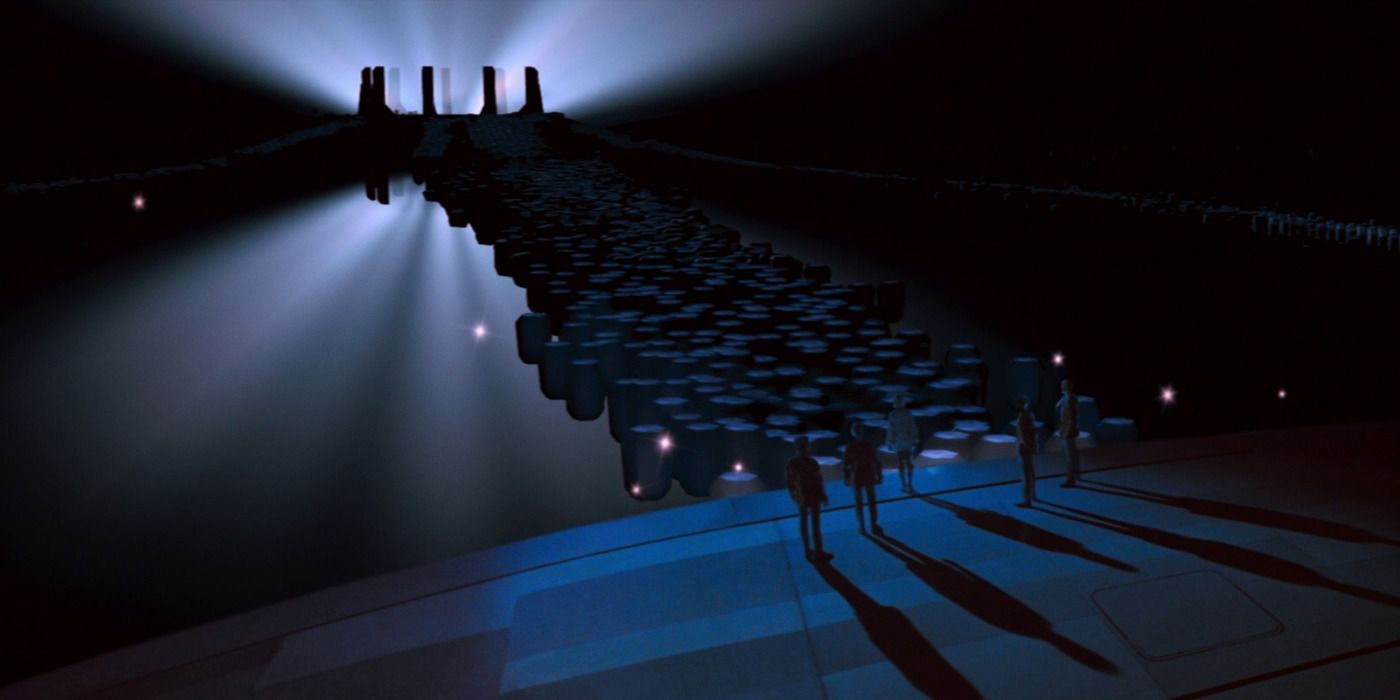
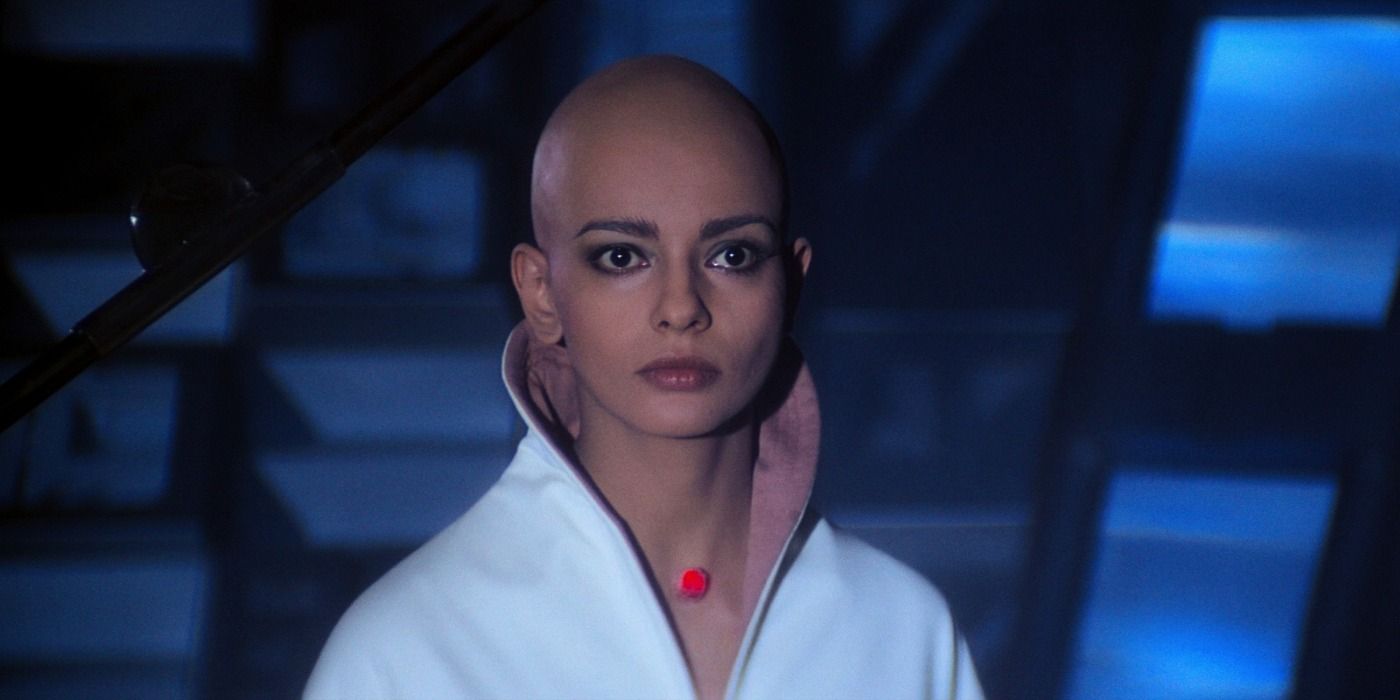
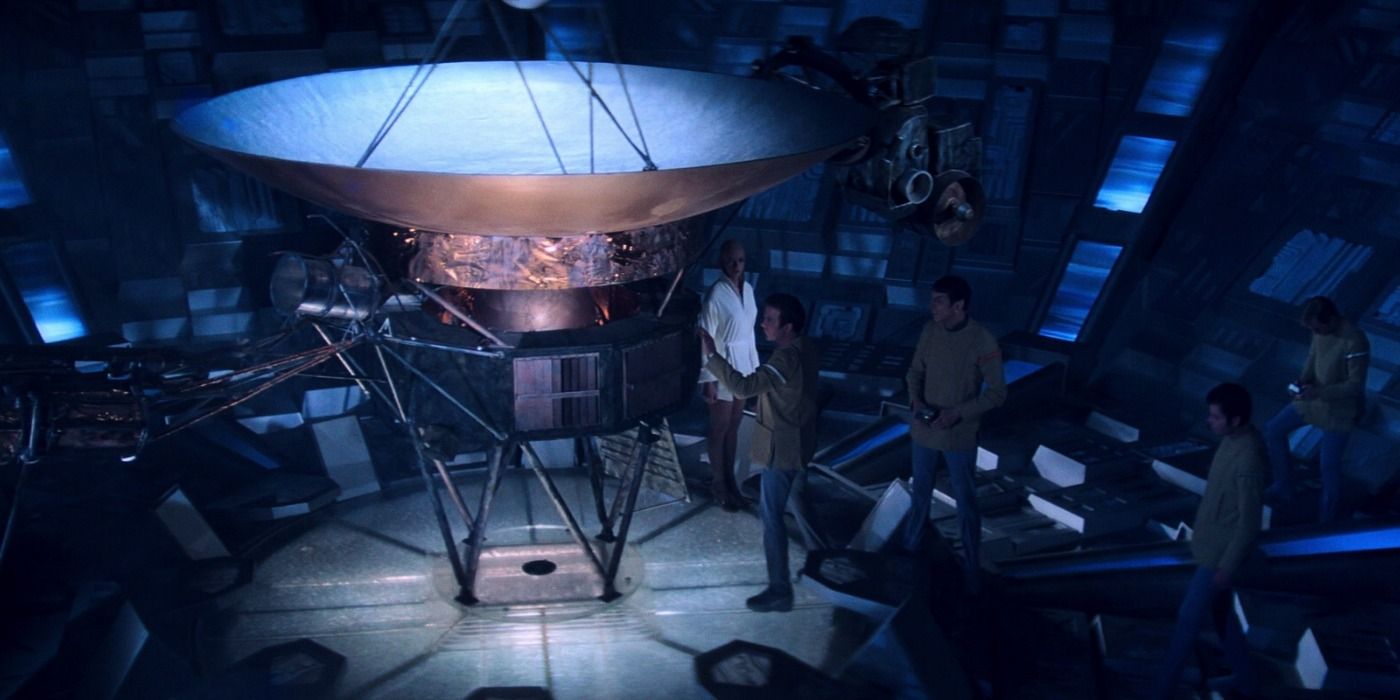
Perhaps the biggest reason that V'Ger isn't ranked highly among Star Trek villains is that it isn't really much of a conventional cinematic antagonist. V'Ger isn't trying to destroy humanity, but has simply gone rogue in all the worst ways possible. This is brilliant on paper, but doesn't necessarily make for the most exciting movie.
Highly-motivated villains like Khan or Kruge are always going to be more interesting to watch because they are inherently more cinematic. That leads to the second reason that V'Ger is overlooked: the movie that it appears in is also usually skipped. The Motion Picture just isn't very good, and even a compelling villain can't make the movie more fun.
Star Trek: The Motion Picture currently holds a 52% on Rotten Tomatoes.
